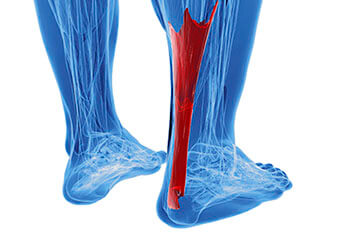Ainsley Roberson Rusevlyan, DPM
(252) 946-1181Washington, NC

The Achilles tendon is not only the strongest, but also the largest tendon in the human body. The main function of the Achilles tendon is to transmit power from the calf muscles to the heel and the foot.
It’s because of the Achilles tendon that we are able to stand on our toes when walking, running, or jumping. Even with all of its strength, the Achilles tendon can be exposed to injury. Due to its limited blood supply and the high tensions placed on it, the Achilles heel can be left vulnerable if harmed.
Possible conditions that may arise due to injury of the Achilles tendon include tears, ruptures, tendinitis, peritendinitis, tendinosis, tendinopathy, and bursitis. When trying to diagnose if one has issues with their Achilles tendon, a podiatrist will commonly check for any pain, swelling, or discoloration around the heel or lower leg area. Different treatments for issues concerning the Achilles tendon vary, but may include over-the-counter or prescribed pain relievers for intense discomfort, alternating ice and heat therapy, custom-made orthotics, physical therapy, and in severe cases, surgery. To help prevent injury to the Achilles tendon, it’s recommended to regularly perform stretches involving the muscles of the lower leg.
If you or someone you know is experiencing pain or discomfort involving the Achilles region, seek out the help of a podiatrist for a proper diagnosis and treatment regime.